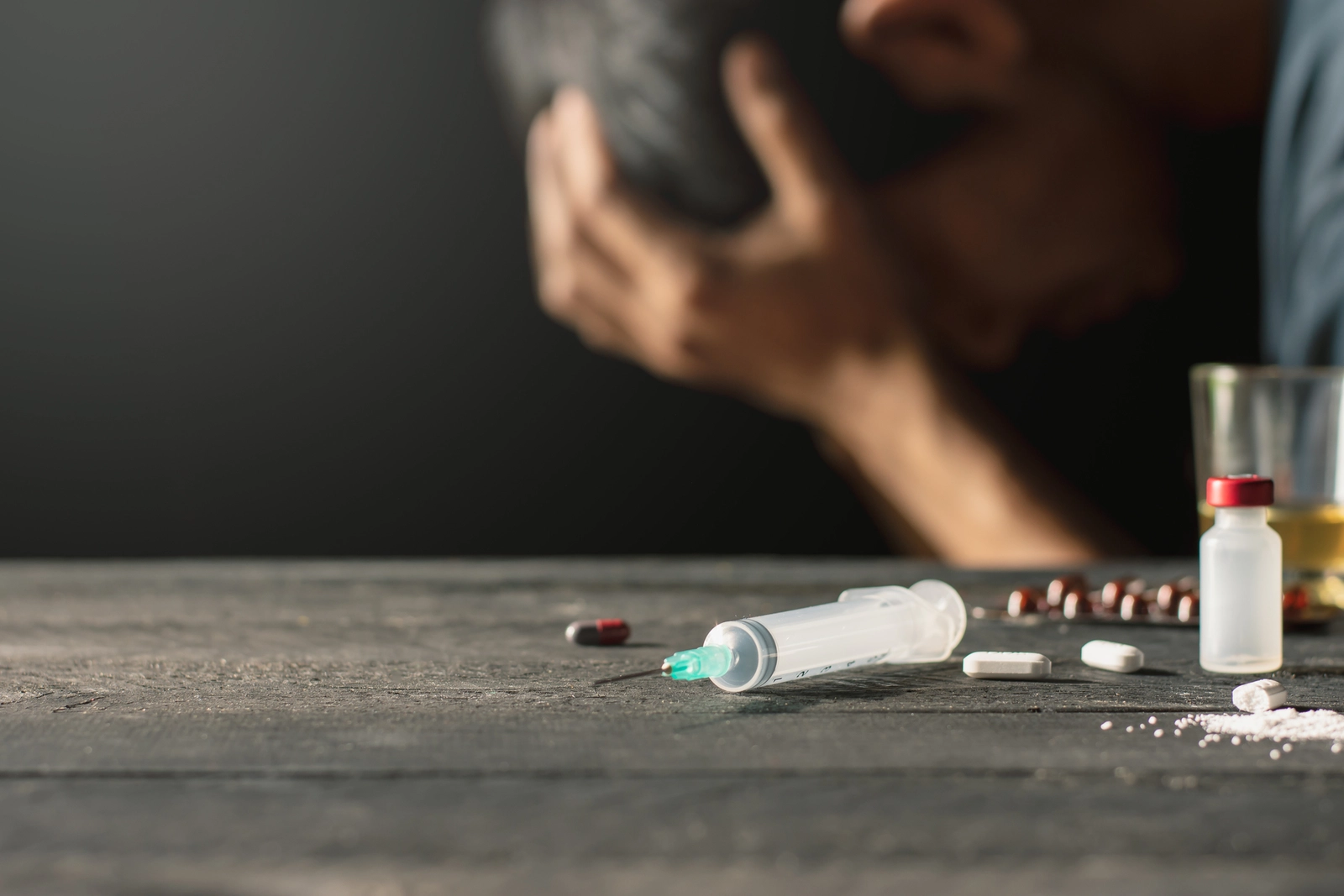Addiction | 5 min read
What Are The Ways of Preventing Drug Abuse?
Medically Reviewed By

On August 26, 2024
Written By
On August 19, 2022

What you will learn
- Drug abuse is a public health crisis that affects millions across the US.
- Though addiction treatment can be effective in addressing a current addiction, it’s best to prevent addiction before it starts.
- Researchers are developing addiction prevention programs for specific groups to address their addiction risk factors.
- There are ways you can help prevent addiction in your loved ones and encourage them to get help if they struggle with drug abuse.
Drug and alcohol addiction is a public health crisis, including the use of illegal drugs, the misuse of prescription drugs, and addiction to legal substances like alcohol and tobacco. Regardless of the substance, there are serious risks to our health. In 2023 alone, there were an estimated 107,543 overdose deaths in the US.[1]
Addiction treatment can be effective in overcoming addiction once it occurs, but there are also ways to prevent drug use before it begins.
Causes of Drug Abuse
Drug abuse and addiction, also known as substance use disorder, is a disease that affects a person’s brain and behavior, causing an inability to control the use of a substance. Drugs aren’t just prescription medications and illegal drugs like opioids and methamphetamines but also include legal substances like alcohol and nicotine.
There are many ways drug addiction can start, from adolescents trying a recreational drug with friends or adults becoming addicted to prescription medications they were legally prescribed. Like many mental health disorders, several factors may contribute to drug addiction, including:[2]
- Environment: Environmental factors, such as peer groups or household attitudes toward substances, can influence initial drug use.
- Genetics: Drug use can develop into an addiction based on genetic traits that can affect how the disease progresses.
Several risk factors can affect whether you become addicted to a drug, including:[3]
- Family history of addiction: Drug addiction is more common in some families and may be affected by genes. If you have blood relatives with alcohol or drug addiction, you have an increased risk of developing an addiction yourself.
- Mental health disorders: Mental health disorders like depression or anxiety can make you more likely to become addicted to drugs. Some people self-medicate their mental illness to cope with painful or uncomfortable feelings, but it can often make them worse.
- Social influences: Peer pressure is a big factor in starting to use and misuse drugs, particularly for adolescents.
- Lack of family involvement: An unstable home life or lack of bonding with parents or siblings can increase the risk of addiction. The same is true for adolescents with minimal parental supervision.
- Early use: Using drugs at a young age can affect the developing brain and increase the likelihood of drug use progressing to an addiction.
- Highly addictive drugs: Some substances have a higher risk of developing into an addiction, including opioid painkillers and stimulants like cocaine. How the drug is used can also affect how powerful the addiction potential is, such as smoking or injecting drugs.
What Are the Ways of Preventing Drug Abuse?
Researchers have been studying the factors that affect substance use and have developed evidence-based prevention strategies tailored to specific age groups and populations to reduce these risk factors, delay the onset of drug use, and stop it from progressing into a substance use disorder. Some of these evidence-based strategies include:[4]
- Family-based programs: Family-based programs are intended for parents and caregivers to access resources to prevent substance abuse in children. For example, family-based programs may include parenting classes to teach parents how to build supportive relationships with children.
- School-based programs: School-based programs help students develop social, emotional, cognitive, and substance-refusal skills. These programs may include education, coping skills training, connecting at-risk children to positive mentors, and after-school programs.
- Community-based programs: Community-based programs work with community organizations and leadership to focus on local at-risk communities. These programs are tailored to the unique needs of each community.\
- Population-specific programs: Population-specific programs help groups with shared characteristics or circumstances, such as racial groups, gender groups, or ethnic groups, overcome the challenges of drug addiction that affect their community. For example, this program may focus on homeless youth to help with their basic needs and reduce addiction risk factors.
- Healthcare prevention strategies: Prevention strategies in healthcare facilities help medical staff identify patients who may be at an increased risk of substance use disorders and direct them to treatment services.
What Can I Do to Prevent Drug Abuse?
While it can be difficult to have a loved one struggling with addiction, whether it’s a child, parent, sibling, or friend, you can’t control their behavior. You can offer support and help them avoid addiction or seek help if it develops. Here are some tips:
- Discuss drug use and addiction openly and honestly. Have talks about tobacco, alcohol, and illicit drugs, especially with your children, and address any misconceptions like “marijuana is harmless” or “everyone drinks alcohol.”
- Encourage questions and concerns instead of lecturing children. Give them a “safe space” to discuss drugs and have a conversation, rather than preaching and setting rules.
- Build self-confidence. Discuss what’s positive about you and your loved ones. Praise not just successes but efforts toward improvement.
- Set a good example. Your habits and thoughts about alcohol, tobacco, or other drugs can leave an impression, particularly on children. Lead by example.
- Help children deal with peer pressure and acceptance. Discuss the importance of being an individual and the meaning of a good friend. Let them know that they don’t have to do wrong things or don’t agree with just to be accepted.
- Encourage healthy activities and habits, such as getting involved in hobbies, athletics, school clubs, or other activities that provide healthy outlets for energy, take up free time, and build positive friendships.
What to Do If Someone You Loved Is Abusing Drugs
Some drug addiction signs and behaviors are specific to the drug involved, but the signs generally include:[5]
- Feeling the need to use a drug regularly, even several times a day
- Experiencing intense urges for a drug that consumes thoughts
- Needing more and more of the drug to get the same effect
- Taking larger amounts of the drug over a longer period than intended
- Spending money on drugs and getting into financial trouble
- Not meeting obligations and work responsibilities because of drug use
- Continuing to use the drug despite problems or harm
- Doing things to get drugs that are out of character, such as stealing
- Driving or engaging in other risky activities under the influence of the drug
- Spending a lot of time getting, using, or recovering from the drug
- Trying to stop using a drug unsuccessfully
It can be difficult to identify drug abuse in family members, particularly adolescents who can be moody or anxious. Here are some signs to look out for:[6]
- Problems at school or work, such as frequent absences, a loss of interest in school, or a drop in grades
- Physical health issues, such as low motivation, excessive sleep, and weight loss or gain
- Neglected appearance, or a lack of interest in clothing, grooming, or looks
- Changes in behavior, such as being secretive about their plans or territorial about their bedroom or personal items
- Money issues, such as frequent requests for money with no explanation or stealing
- Drug paraphernalia, such as pipes, bongs, and lighters
- Frequent trouble with the law
Seeking Help for Drug Abuse and Addiction
If you or a loved one is struggling with drug abuse, get help as soon as possible. The earlier you seek treatment, the less likely you are to experience adverse health effects like overdose, severe withdrawal, and complications related to long-term drug use. Recovery is also more effective if it occurs early in the process, allowing you to “re-train” the brain and body to function without drugs.
Depending on the drug involved, addiction treatment may include medical detox to manage withdrawal and a full addiction treatment program on an inpatient or outpatient basis. Individual and group counseling, support groups, and behavioral therapies are recommended for most substance use disorders, but some may benefit from medication-assisted treatment (MAT) and other modalities.
Don’t Wait to Get Help for Drug Addiction
Drug addiction is a public health crisis, leading to health problems and overdose deaths across the country. Many factors contribute to addiction, including genetic and environmental factors, so it’s easier to prevent drug abuse before it begins. However, addiction treatment can be effective, especially if it starts early.
Frequently Asked Questions About Preventing Drug Abuse
Signs of drug abuse can include changes in behavior, mood swings, secretive behavior, neglecting responsibilities, and physical changes like unusual smells or weight loss. Symptoms can vary by individual, however.
Preventing drug abuse in adolescence is crucial to prevent issues with drugs in adulthood. Some effective strategies include open communication about drug use, education about drugs and their effects, and positive role models to encourage healthy habits.
Communities can help prevent drug abuse with awareness campaigns, safe environments, and community programs for education, treatment, and support services.
Ascendant New York Editorial Guidelines
Here at Ascendant New York, we understand the importance of having access to accurate medical information you can trust, especially when you or a loved one is suffering from addiction. Find out more on our policy.
[1] Centers for Disease Control and Prevention. (2024, May 15). U.S. overdose deaths decrease in 2023, first time since 2018. Centers for Disease Control and Prevention. Retrieved from https://www.cdc.gov/nchs/pressroom/nchs_press_releases/2024/20240515.htm on 2024, July 25.
[2,3] Mayo Foundation for Medical Education and Research. (2022, October 4). Drug addiction (substance use disorder). Mayo Clinic. Retrieved from https://www.mayoclinic.org/diseases-conditions/drug-addiction/symptoms-causes/syc-20365112 on 2024, July 25.
[4] U.S. Department of Health and Human Services. (2024, May 29). Prevention. National Institutes of Health. Retrieved from https://nida.nih.gov/research-topics/prevention#evidence-based-prevention-strategies on 2024, July 25.
[5,6] Mayo Foundation for Medical Education and Research. (2022, October 4). Drug addiction (substance use disorder). Mayo Clinic. Retrieved from https://www.mayoclinic.org/diseases-conditions/drug-addiction/symptoms-causes/syc-20365112 on 2024, July 25.





